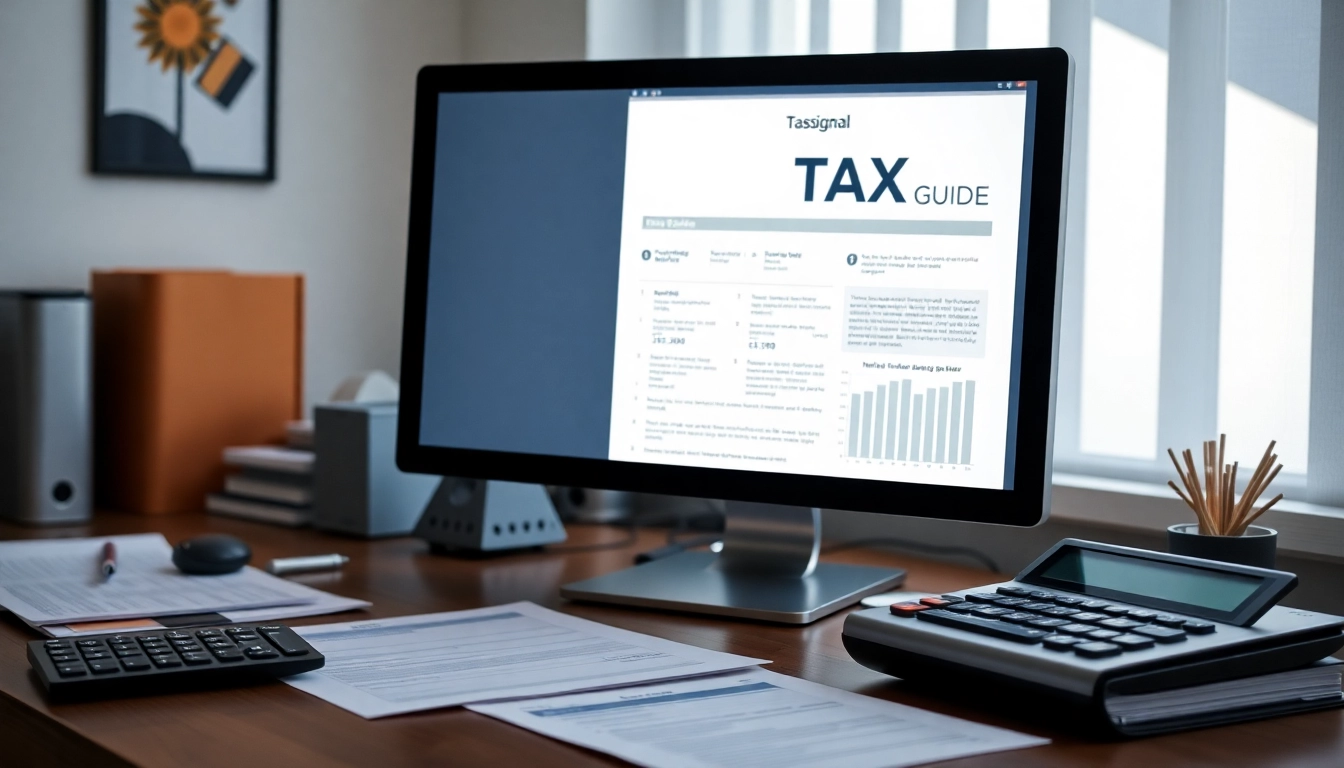Mastering the Art of Tax Planning: Your Comprehensive Guide
Understanding the Basics of a Tax Guide
Navigating the complex world of taxation can be daunting without proper guidance. A Tax Guide serves as an essential roadmap, helping individuals and businesses understand their tax obligations, optimize their financial strategies, and ensure compliance with evolving legislation. It simplifies complex tax laws, highlights opportunities for savings, and provides clarity on legal obligations, making it a vital resource for anyone looking to manage their finances efficiently.
What is a Tax Guide and Why It Matters
A tax guide is a comprehensive document or resource that consolidates tax laws, guidelines, and strategies into an accessible format. It matters because taxes directly impact your income, savings, and investments. An accurate understanding of tax requirements helps prevent costly penalties, identifies potential deductions and credits, and maximizes your net income. Whether you’re a seasoned investor or a first-time filer, a tax guide ensures you’re making informed decisions aligned with current laws.
Key Components of Effective Tax Guides
Effective tax guides typically include sections on income reporting, allowable deductions, tax credits, investment considerations, and compliance procedures. They also provide updates on legislative changes, practical examples, calculators, and frequently asked questions. Such features enable users to tailor strategies to their circumstances, reduce tax liabilities legally, and prepare for future fiscal years with confidence.
How a Tax Guide Can Save You Money
Proper utilization of a tax guide reveals opportunities for tax deferral, deductions, and credits that might otherwise go unnoticed. For example, understanding how to leverage retirement contributions or investment deductions can significantly lower taxable income. Staying informed about changes in legislation — such as adjustments to personal allowance or new incentives for renewable energy investments — ensures taxpayers capitalise on available benefits, leading to substantial savings over time.
Essential Tax Planning Strategies
Income Reporting and Deductions
Accurate income reporting is foundational to effective tax planning. This involves aggregating all sources of income, including employment, investments, rental income, and freelance earnings. Simultaneously, identifying deductible expenses—such as mortgage interest, business costs, or charitable contributions—reduces taxable income. For instance, self-employed individuals can claim expenses related to home offices, equipment, and travel, directly impacting their tax bill.
Tax Credits and Incentives
Tax credits are directly subtracted from your tax liability, making them highly valuable. Examples include child tax credits, energy-efficient home upgrades, or investments in renewable energy projects. Recognizing and claiming applicable credits requires awareness of legislative updates and proper documentation. Utilizing tax credits effectively can halve your payable taxes or even generate refunds, thereby boosting your financial position.
Tax-Friendly Investment Options
Investments sheltered within tax-advantaged accounts—such as ISAs, pensions, or government bonds—offer significant benefits. Strategic allocation within these vehicles can defer tax liabilities or generate tax-free returns. For example, investing in a Stocks and Shares ISA allows your gains to grow free from capital gains tax or income tax, maximizing growth potential. Additionally, opting for investments that offer tax incentives can enhance your portfolio’s overall efficiency.
Advanced Tax Optimization Techniques
Legal Strategies for Tax Reduction
Advanced planning involves proactive legal strategies, including income splitting, establishing trusts, or making use of tax-efficient structures. For high-net-worth individuals, creating family trusts can transfer wealth while minimizing inheritance taxes. Similarly, optimizing the timing of income and expenses—such as deferring bonuses or accelerating deductible expenses—can significantly reduce tax burdens within legal frameworks.
Utilizing Tax-Deferred Accounts
Tax-deferred accounts, including pensions and certain savings plans, allow investments to grow without immediate tax liability. Contributions often qualify for tax relief, and taxes are paid only upon withdrawal, typically at a lower rate. Properly harnessing these accounts enhances long-term growth and can reduce current year tax liabilities—especially important for retirement planning.
Navigating International Tax Laws
In an increasingly global economy, understanding cross-border tax laws is critical. Strategies such as tax treaties, domicile considerations, or offshore investments can optimize tax outcomes. For example, residents of countries with favorable treaties might reduce withholding taxes on foreign income or dividends, enhancing overall returns. Consultations with international tax experts ensure adherence to laws while maximizing benefits.
Tools and Resources for Effective Tax Management
Top Software and Apps
Technology simplifies tax management with applications that track expenses, calculate liabilities, and help with compliance. Leading tools like TurboTax, TaxAct, or specialized accounting software can automate data entry, run scenario analyses, and generate reports, saving time and reducing errors. Incorporating these tools into your routine ensures accurate, timely filings.
Consulting Tax Professionals
While self-education is valuable, personalized advice from qualified tax professionals grants insights tailored to your financial situation. Experts can uncover overlooked deductions, advise on complex legal strategies, and help you stay compliant amidst changing laws. Regular consultations—especially during significant financial events—are a wise investment in maintaining optimal tax health.
Staying Up-to-Date with Legislation
Tax laws evolve frequently, influenced by economic policies and political decisions. Subscribing to government updates, professional journals, or financial news outlets keeps you informed. Engaging with reputable sources ensures you adapt your strategies proactively and avoid penalties or missed opportunities.
Maintaining Compliance and Preparing for Audits
Record-Keeping Best Practices
Accurate and organized records—including receipts, bank statements, and previous filings—are essential. Digital tools like cloud storage facilitate secure, accessible documentation. Establishing routine reconciliation and audit trails reduces stress during filing season and prepares you for potential audits.
Common Audit Triggers and How to Avoid Them
Red flags include high deductions relative to income, inconsistent reporting, and missing documentation. To minimize audit risk, ensure all claims are supported by proper evidence, report income accurately, and adhere to legal limits. Transparency and thoroughness are your best defense.
Steps to Take During an Audit
If selected for audit, respond promptly with organized documentation. Engage professionals if necessary, and communicate clearly with tax authorities. Understanding your rights and obligations reduces anxiety and increases the likelihood of a smooth resolution.









